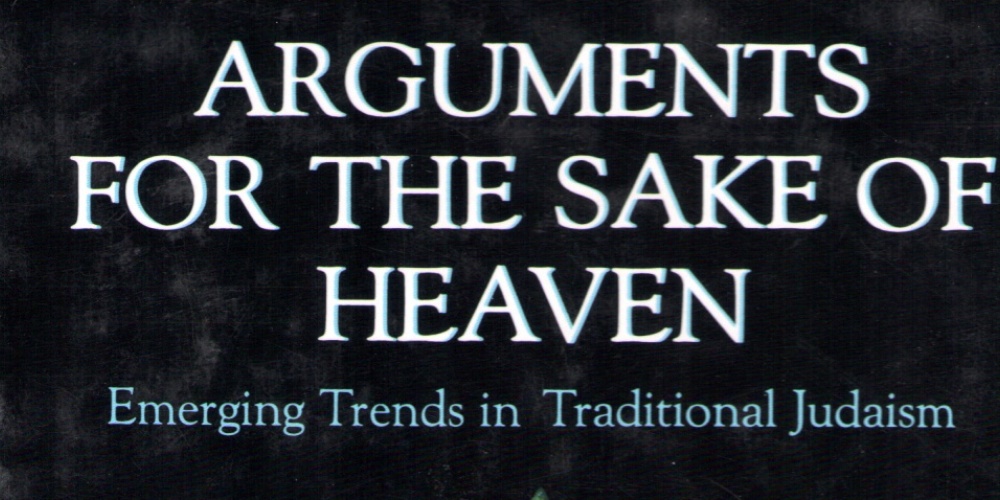
Our rabbis greatly extolled the virtues of arguments for the sake of heaven. In these disputes, the disputants not only do not take their opponents' critiques personally, they welcome them; and through them, they sharpen and refine their views. Unfortunately, such disputes are rare, as most people find it difficult to separate the "person from the problem". But Beit Shammai and Beit Hillel are not most people.
"Beit Shammai allows one to marry the co-wife of one's relative, and Beit Hillel forbids" (Yevamot 13a). As we have discussed previously, when one's brother dies childless, a surviving brother must do yibum or chalitzah with the widow of the deceased. If the brother was married to more than one wife, yibum orchalitzah needs to be done with only one of them. Yet, if any of the wives of the deceased are related to the surviving brother, he is not allowed to do yibum to any of the wives, including those not related to him. Chalitzah is also not required and thus all the wives are free to remarry automatically upon their husband's death[1]. So claims Beit Hillel.
Beit Shammai disagrees, and insists that the fact that one of the brothers is related to one of the wives has no bearing on the others Thus, yibum or chalitzah would be required with one of the other wives. This is no trifling argument. While Beit Shammai allows one to marry a sister-in-law, Beit Hillel would deem the child of such a union a mamzer, forbidden to marry all but other mamzerim or converts[2].
Such a dispute would most likely create an unbridgeable gap between other disputants. But Beit Hillel and Beit Shammai were no ordinary disputants. "Despite the fact that these forbid and these allow, that these invalidate and these validate, Beit Shammai did not hesitate to marry women of Beit Hillel, nor Beit Hillel to [marry women of] Beit Shammai" (Yevamot 13b). Similarly, the Mishnah continues, regarding vessels that these deemed ritually pure while these deemed ritually impure, "they did not refrain from using the utensils of the other when preparing [food] that was to be ritually clean"[3].
The fact that, despite significant differences in the interpretation of Jewish law, Beit Shammai and Beit Hillel not only respected each other, but married each other's followers was so extraordinary that the Gemara actually tries to prove from here that Beit Shammai only expressed their views in theory, but not in practice. If they actually practiced such, they could not "intermarry" with Beit Hillel, as doing such may mean that the adherents of Beit Hillel would be marrying mamzerim. "Rather, we see from here that they did not practice such".
All too often, disputes in one area prevent not only friendship, but even cooperation in other areas. But Beit Hillel and Beit Shammai were of a different bent. "No," the Gemara responds, "leolam, they would [never hesitate to] do so; but they informed them and they stayed away".
Religious pluralism means holding one's views dear while at the same time having the ability to respect and legitimize the views of others[4]. There were times when Beit Shammai and Beit Hillel could not marry. But those cases were rare and easily dealt with; just be open about such cases. It is regarding the disputes between Beit Hillel and Beit Shammai that our rabbis declare, "these and those are words of the living G-d" (Eiruvin 13b). Something and its opposite can both be Divine.
To conclude with a more contemporary example--one that often splits communities apart--Rav Moshe Feinstein, zt"l, was strict in the area of eiruvin, ruling (for example) that the Manhattan eiruv (of his day) was invalid. Yet he recognized that others had the right--nay, the obligation [5] if they so deemed--to disagree, and construct such an [in his view, invalid] eiruv (Iggrot Moshe, Orach Chaim 4:89). It takes great confidence in one's own views to be able to validate the views of others.
One can forbid or permit, declare pure or impure, validate or disqualify. But one must always be cognizant that others see things differently[6].
[1] If there is a third brother who is unrelated to any of the wives, that brother would need to do either yibum or chalitzah.
[2] While on the surface, this sounds 'discriminatory' towards converts, in reality it allows the convert greater choices in marriage. They, unlike most Jews, can marry both non-mamzersand mamzers.
[3] While our Mishnah extols these two great centres of learning, the Gemara (Sanhedrin 88b) criticizes the Houses (students) of Hillel and Shammai for not fully serving their teachers, leading to misunderstanding and disputes; causing "the Torah to become like two Torot". And the Mishnah in Pirkei Avot (5:17) lists as disputes for the sake of heaven those between Hillel and Shammai, but not Beit Hillel and Beit Shammai. There are clearly varying levels of arguments that are not for the sake of heaven.
[4] There are, of course, times when other views are just plain wrong; "and here is not the place to elaborate."
[5] In his beautiful introduction to the Iggrot Moshe, Rav Feinstein explains that rabbinic authorities must rule in accordance to their understanding of the law even when other greater scholars disagree.
[6] The Gemara explains that we follow the view of Beit Hillel--something quite difficult in light of the fact that our Gemara (Yevamot 14a) explicitly says the Beit Shammai "were sharper"--because before they explained their own view, they would begin by explaining the dissenting view of Beit Shammai.



